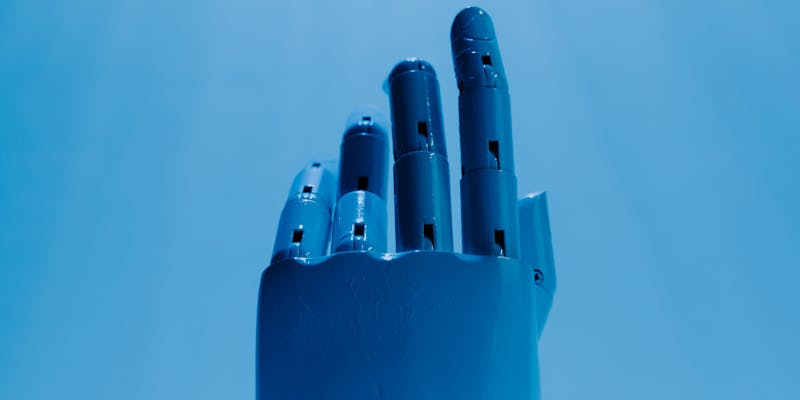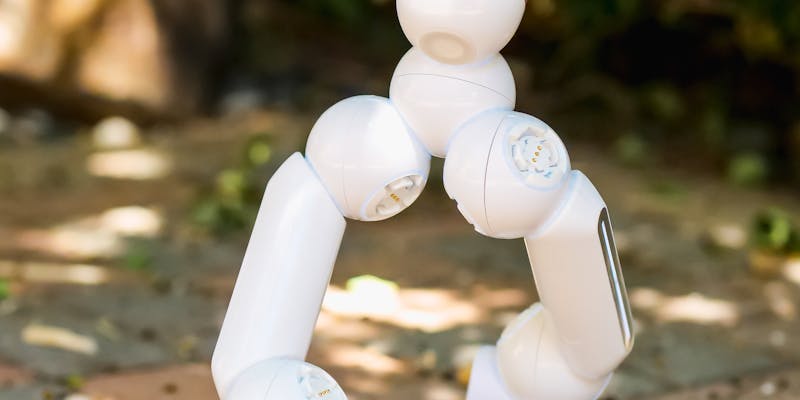Revolutionizing Education: How AI-Powered Personalized Learning is Transforming Workforce Development
Welcome to a future where education meets innovation in unprecedented ways, reshaping the landscape of learning and workforce development. In this article, we delve into the realm of AI-powered personalized learning and its profound impact on preparing individuals for the ever-evolving demands of the modern workforce. Discover how AI is revolutionizing education by customizing learning experiences, enhancing efficiency in workforce development, and enabling real-time skill acquisition through adaptive learning techniques. We explore the advantages of leveraging AI to boost productivity with tailored training programs, ultimately guiding you through navigating the future of work with cutting-edge technology embedded in educational practices. Join us on this journey as we uncover the transformative power of AI in shaping the future of education and workforce development

The Role of AI in Customizing Learning Experiences
The Role of AI in Customizing Learning Experiences
Artificial intelligence is reshaping education by providing personalized learning experiences that cater to individual needs, making workforce development more efficient. With advancements in AI in education, adaptive learning platforms are becoming more accessible, allowing employees to gain relevant skills in real time. This AI-powered workforce training not only enhances productivity but also prepares learners for future job requirements, aligning with trends in AI learning tools, AI-based education solutions, and the future of learning technologies.
In today's fast-paced world, the workforce needs to continuously evolve and upskill to stay relevant and competitive. Traditional, one-size-fits-all approaches to learning are no longer effective in meeting the diverse needs and learning styles of employees. This is where AI steps in, offering a solution that revolutionizes education and workforce development as we know it.
By leveraging AI-powered personalized learning, organizations can create tailor-made learning experiences that adapt to each individual's strengths, weaknesses, and pace of learning. This customization not only keeps employees engaged and motivated but also ensures that they acquire skills and knowledge that are specifically relevant to their roles and career aspirations.
One of the key benefits of AI in customizing learning experiences is its ability to provide real-time feedback and recommendations based on individual performance. This adaptive approach allows employees to receive targeted support exactly when they need it, resulting in a more efficient learning process and higher retention rates.
Moreover, AI-powered personalized learning can identify emerging skills gaps and training needs within an organization, enabling proactive workforce development strategies. By analyzing data on employee performance and engagement, AI can help employers anticipate future job requirements and design training programs that align with these evolving needs.
As AI continues to advance, the possibilities for personalized learning experiences in workforce development are endless. From virtual tutors that adapt to individual learning styles to interactive simulations that mimic real-life work scenarios, AI is reshaping the future of education and training.
In conclusion, the role of AI in customizing learning experiences is a game-changer for workforce development. By harnessing the power of artificial intelligence, organizations can create a more efficient, engaging, and tailored learning environment that equips employees with the skills they need to succeed in an ever-changing workplace landscape. The future of learning is personalized, and AI is at the forefront of this educational revolution
Advantages of AI for Efficient Workforce Development
Advantages of AI for Efficient Workforce Development
Artificial intelligence is reshaping education by providing personalized learning experiences that cater to individual needs, making workforce development more efficient. With advancements in AI in education, adaptive learning platforms are becoming more accessible, allowing employees to gain relevant skills in real time. This AI-powered workforce training not only enhances productivity but also prepares learners for future job requirements, aligning with trends in AI learning tools, AI-based education solutions, and the future of learning technologies.
One of the key advantages of integrating AI into workforce development is the ability to tailor learning experiences to each individual's specific needs and learning pace. Traditional one-size-fits-all training programs are often inefficient as they may not address the unique strengths and weaknesses of each employee. AI-powered personalized learning, on the other hand, uses data analytics and machine learning algorithms to create customized learning paths for employees, ensuring that they receive the right content, in the right format, and at the right time.
Moreover, AI can continuously assess employees' performance and progress, providing real-time feedback and recommendations for improvement. This immediate feedback loop accelerates the learning process and enables employees to make quick adjustments to their learning strategies. By identifying areas where individuals may be struggling or excelling, AI can help organizations allocate resources more effectively, focusing on areas that need the most attention.
Furthermore, AI-powered learning platforms have the capacity to adapt to the evolving needs of both the workforce and the job market. As technology and industries continue to change rapidly, employees need to upskill and reskill to remain competitive. AI can forecast future skills requirements based on industry trends and job market demands, guiding employees on the most valuable skills to develop for career advancement. This proactive approach to learning not only benefits individual employees but also ensures that organizations have a workforce that is well-prepared for the challenges of tomorrow.
In conclusion, the advantages of AI for efficient workforce development are numerous and transformative. By offering personalized learning experiences, real-time feedback, and future-focused skills development, AI is revolutionizing the way employees learn and grow within their careers. As AI continues to evolve and become more integrated into educational technologies, the potential for enhancing workforce development outcomes is limitless
Real-Time Skill Acquisition Through Adaptive Learning
Real-Time Skill Acquisition Through Adaptive Learning
Artificial intelligence is reshaping education by providing personalized learning experiences that cater to individual needs, making workforce development more efficient. With advancements in AI in education, adaptive learning platforms are becoming more accessible, allowing employees to gain relevant skills in real time. This AI-powered workforce training not only enhances productivity but also prepares learners for future job requirements, aligning with trends in AI learning tools, AI-based education solutions, and the future of learning technologies.
The traditional one-size-fits-all approach to training and development is no longer as effective in today's rapidly evolving work environment. Organizations are recognizing the importance of real-time skill acquisition through adaptive learning to keep up with the changing demands of the workforce. AI-powered personalized learning platforms analyze data on individual learning styles, preferences, and progress to tailor the learning experience to each employee's specific needs.
By leveraging AI algorithms, these platforms can identify areas where employees need additional support and provide targeted resources to help them improve their skills. This enables employees to learn at their own pace, focusing on areas where they need the most development while bypassing content they already understand. As a result, employees can acquire new skills more quickly and effectively, leading to improved job performance and increased job satisfaction.
Moreover, the data-driven nature of AI-powered adaptive learning platforms allows organizations to track the progress of their employees in real time. By monitoring skill development and learning outcomes, employers can identify areas of strength and areas for improvement across their workforce. This valuable insight enables organizations to make data-driven decisions when planning future training initiatives, ensuring that training programs are aligned with the skills needed for future job roles.
In conclusion, AI-powered personalized learning is revolutionizing workforce development by offering employees a more efficient and effective way to acquire and develop skills in real time. By embracing adaptive learning technologies, organizations can not only enhance employee productivity but also stay ahead of the curve in preparing their workforce for the demands of the future job market. With AI-based education solutions leading the way, the future of learning technologies is brighter than ever, promising a more personalized and impactful learning experience for employees across industries

Boosting Productivity with AI-Powered Training Programs
Boosting Productivity with AI-Powered Training Programs
Artificial intelligence is reshaping education by providing personalized learning experiences that cater to individual needs, making workforce development more efficient. With advancements in AI in education, adaptive learning platforms are becoming more accessible, allowing employees to gain relevant skills in real time. This AI-powered workforce training not only enhances productivity but also prepares learners for future job requirements, aligning with trends in AI learning tools, AI-based education solutions, and the future of learning technologies.
One of the key benefits of AI-powered personalized learning is the ability to tailor training programs to each individual's unique learning style and pace. Traditional one-size-fits-all training methods are often ineffective as they fail to address the diverse needs and abilities of employees. AI algorithms analyze data on an individual's learning history, preferences, and performance to create a customized learning path that maximizes engagement and retention.
Moreover, AI-powered training programs can adapt in real time based on an employee's progress and feedback. This dynamic approach ensures that learners are constantly challenged at the right level and receive additional support in areas where they may be struggling. By providing personalized recommendations for further study or practice, AI enables employees to focus on areas that require improvement, leading to more effective skill development and increased productivity in the workplace.
Additionally, AI-powered training programs can simulate real-world scenarios and provide interactive experiences that engage employees and enhance their learning outcomes. By incorporating elements such as gamification, virtual reality, and augmented reality, AI-driven training can make learning more immersive and enjoyable, leading to higher levels of motivation and retention of knowledge.
In conclusion, the integration of AI-powered personalized learning into workforce development programs is revolutionizing the way employees acquire new skills and knowledge. By offering tailored training programs that cater to individual needs and preferences, AI is not only boosting productivity but also ensuring that employees are well-equipped to meet the evolving demands of the future workplace. Leveraging AI in education is not just a trend but a transformative force that has the potential to unlock new possibilities for workforce development and lifelong learning
Navigating the Future of Work with AI in Education
Navigating the Future of Work with AI in Education
Artificial intelligence is reshaping education by providing personalized learning experiences that cater to individual needs, making workforce development more efficient. With advancements in AI in education, adaptive learning platforms are becoming more accessible, allowing employees to gain relevant skills in real time. This AI-powered workforce training not only enhances productivity but also prepares learners for future job requirements, aligning with trends in AI learning tools, AI-based education solutions, and the future of learning technologies.
By leveraging AI algorithms and machine learning capabilities, personalized learning paths are created for each individual, taking into account their strengths, weaknesses, learning pace, and preferences. This tailored approach to learning ensures that employees can acquire new skills and knowledge at their own pace, increasing engagement and comprehension.
Furthermore, AI-powered personalized learning is not limited by time or location constraints. Employees can access learning materials and resources whenever and wherever they are, allowing for continuous skill development without disrupting their work schedules. This flexibility is crucial in today's fast-paced work environment, where upskilling and reskilling are essential to staying competitive.
Moreover, AI in education is enabling a shift from traditional one-size-fits-all training programs to adaptive and responsive learning experiences. This ensures that employees are only focusing on the skills and knowledge that are relevant to their roles, maximizing the efficiency of the learning process.
As AI continues to advance in education, the future of workforce development looks increasingly promising. Employees will have the opportunity to engage with cutting-edge learning technologies that not only enhance their current job performance but also prepare them for the evolving demands of the future workplace. In essence, AI in education is not just transforming how we learn but also how we work, paving the way for a more skilled and agile workforce